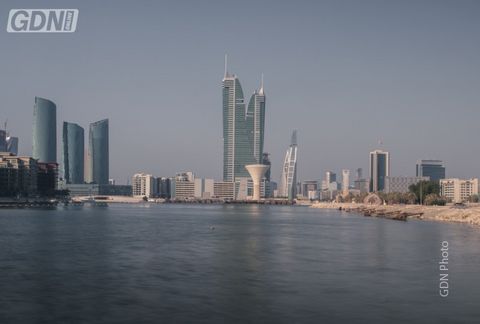IMF affirms Bahrain’s ‘very strong’ economic recovery

Bahrain has seen “very strong” economic recovery in the post-Covid-19 period on the back of robust non-oil growth, the International Monetary Fund (IMF) has said.
In a statement after it completed the annual Article IV Mission to the kingdom, the IMF said fiscal reforms and high oil prices improved fiscal and external positions and provided an opportunity to continue with ambitious fiscal reforms to put debt on a firm downward path in the kingdom.
It added that full implementation of the 2023/24 state budget will go a long way towards achieving this goal.
Bahrain’s banking sector is resilient and weathered the phasing out of Covid-19 measures well, however, with tightening financing conditions, banking system risks should continue to be closely monitored, the organisation said.
At the conclusion of the visit, IMF Middle East and Central Asia deputy division chief and mission chief for Bahrain Asmaa El Ganainy said, “Bahrain experienced strong growth in 2022, in line with other GCC countries.
“Continued fiscal reform momentum and high oil prices improved fiscal and external balances. The economy grew by 4.9 per cent in 2022, driven by 6.2pc growth in non-hydrocarbon GDP while hydrocarbon GDP contracted by 1.4pc. Non-hydrocarbon growth was driven by public, financial and hospitality services and manufacturing. CPI inflation accelerated to 3.6pc on average in 2022.
“With the economic recovery well underway, ongoing fiscal reforms, and higher oil prices, the state budget deficit declined significantly, narrowing to 1.7pc of GDP in 2022, from 6.8pc in 2021, while the overall fiscal deficit declined from 11.6 to 6.1pc of GDP. Government debt declined to 117pc of GDP in 2022 from 126pc of GDP in 2021. The current account improved markedly and posted its largest surplus in decades, estimated at 15.4pc of GDP in 2022, up from 6.6pc of GDP surplus in 2021.”
According to the official, GDP growth in Bahrain is projected to moderate to 2.7pc in 2023, with non-oil GDP growing by 3.2pc reflecting fiscal consolidation, higher interest rates, and a base effect from 2022 strong growth.
Ms El Ganainy sees the country’s economic expansion stabilising at around 2.7pc over the medium term.
Noting that the authorities remain strongly committed to the reform agenda outlined in the Economic Recovery Plan and that the 2023/24 budget is guided by the Fiscal Balance Programme targets, which focus on reducing the fiscal deficit and public debt, she explained that measures already implemented include spending restraint and efficiency improvements and increasing the non-oil revenue base.
“Fiscal consolidation should continue beyond 2024 with ambitious and growth-friendly reforms to reduce reliance on oil revenue and put debt on a firm downward path. A stronger fiscal position would also enhance forex reserve accumulation, thereby supporting the exchange rate peg which remains an appropriate monetary anchor,” she added.
The IMF has advised that enhancing labour market mobility, containing public sector wages, and continuing to address skill mismatches in the labour market with well-integrated and co-ordinated training programmes would provide employment opportunities for Bahrainis in the private sector.
Highlighting the commendable progress achieved in Bahrain to enhance female labour force participation and employment, the mission chief called for institutionalising flexible work arrangements, enhancing mobility, and introducing gender balance acts that promote gender equality in senior positions to further lift female participation and boost potential growth.
“Further developing economic digital infrastructure, including cybersecurity investment, is key to promoting potential growth while minimising and managing potential risks from digital innovation.
“Finally, gradually phasing out energy subsidies to increase fiscal space for renewable energy investment would help move toward Bahrain’s emission reduction goals and support its energy transition without creating additional fiscal needs,” Ms El Ganainy concluded.
The IMF mission visited Manama from May 9 to 18 this year.
The purpose of Article IV consultations is to assess the economic and financial situation of a member country and to provide advice on policies that can help to promote economic growth and stability.
Source: https://www.gdnonline.com/Details/1242582


